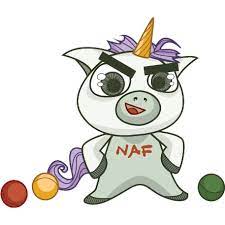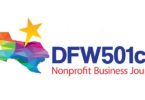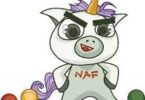Hi everyone, I’m still working on fixing the email notification system, since it has been sending out notices of new posts to only 12 or so people each week. Thanks for your patience. Before we get started on this week’s topic, please join me at the Nonprofit Marketing Summit, which is going on this week March 5 to 7. I’ll be on a panel with Stephen Gyllenhaal (producer of the documentary Uncharitable) and nonprofit leader Dorri McWhorter on March 6 at 2pm PT to discuss overhauling the nonprofit sector. The summit is FREE. Register here. Auto-captions will be available.
This week, for all 12 colleagues who got notices of this post, we talk about the idea of legacy. This is a word we use a lot in our work, especially in fundraising. For instance, talking to donors about what kind of legacy they want to leave. And last year, I got into trouble because someone asked what was wrong with a wealthy person hoarding wealth away in order to create a “legacy of philanthropy” for their offspring to engage in, and I called it gross. Because it’s gross. (Lots of people were offended. I had to write an apology).
Like with many other concepts in our sector, it’s time to examine our definition and ideas around “legacy” and how we engage donors around it. Currently, the way most of us think of legacy is very narrow: It’s basically what people will leave behind when they die, and how other people will remember them. It is one of the tools we fundraisers use, and it can lead to donations. For instance, someone donating a large sum and getting a building named after them, a legacy that will last long after they’re gone.
But let’s be more thoughtful. Whether we like it or not, how we engage with donors changes the way they think about things as well as how they behave. And generations of reinforcement around the concept of legacy has solidified this framework in people’s minds, which can make it difficult as our sector shifts towards more of a justice-centered approach of doing this work, vs. the charity lens. If we’re going to make the world more just, then we need to think of legacy differently, and encourage our donors to do so as well.
A few months ago, I gave a keynote targeted towards donors. The talk was called “Justice as Legacy: Community-Centric Fundraising and the Evolution of Philanthropy.” It was a no-BS conversation with donors and nonprofits about all the changes happening in our sector and world. Riffing on Maslow’s hierarchy of needs, I developed the Vu’s Hierarchy of Legacy. Here it is below, in reverse order, from most common/ego-driven to most rare/enlightened in terms of how people think of their legacy:
Ego Level. Your legacy is the continuation of your ego. You are seen as a hero. You get plaques. Your name and picture appear on donor walls. You get glowing newspaper articles written about you. Your names appear on buildings.
Ego-Extended Level. Your legacy is the above, but it’s also extended to your family and those close to you. For example you start a family foundation or Donor-Advised Fund so your kids and grandkids participate in philanthropy after you’re gone. Your legacy is your family’s name being associated with doing good.
Neo Level. Legacy is the improvement of the community, but still within the framework of existing inequitable systems, especially capitalism. You are remembered for helping hungry kids, building homeless shelters, etc., but you are not remembered for challenging the systems that create hunger, homelessness, etc. Your legacy is a world that is slightly better, but much inequity and injustice still remains.
…









